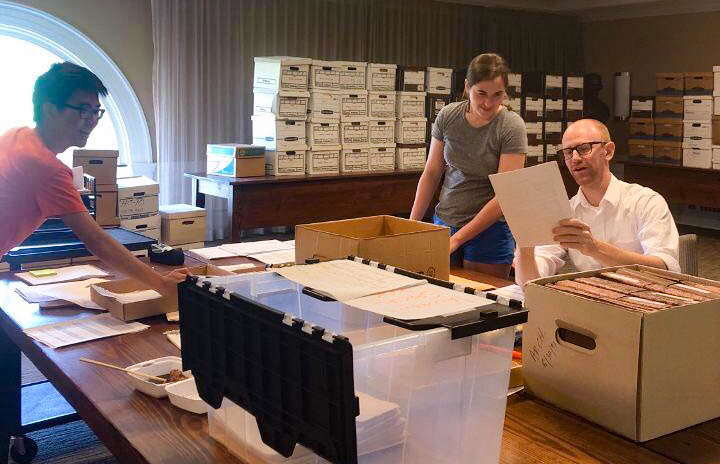
Read the Full Data Analysis by Clicking the Link Below
Bicentennial Report Data Analysis Full Report
Letter from the Chair
To the Community of Trust,
On behalf of the Honor Committee, thank you for engaging our Bicentennial Data Analysis. The data within this report should not be viewed in dispassionate isolation and should be considered alongside the greater history of our constantly evolving Honor System, University, and society. Too often, the Honor System's available data has been guarded, a disservice to the University seeking to improve its most revered tradition. With the Bicentennial Report - of which this data analysis a significant part - we attempt to share the full story of the Honor System, with the spirit of transparency and honesty that defines the Community of Trust.
The confidentiality of reported students, and those who report them, is of paramount importance to the Honor Committee. This Analysis avoids analyses which would compromise that confidentiality by, for example, providing multiple demographic identifiers for specific cases. Any potentially identifying case information provided within this Analysis, and elsewhere in the Report, was previously made widely available through contemporary press reporting, public legal action, or other direct action by the involved parties. No personal information, aside from aggregated and de-identified case data, has been disclosed from otherwise confidential Honor files.
The number of reports received annually by the Honor Committee is small relative to the number of students at the University. To draw conclusions from any single year's data would not take into account the annual variability in reporting trends and case outcomes. In an effort to mitigate this form of statistical bias, and to further protect the confidentiality of individual students, case data has often been aggregated across several years prior to analysis.
The University of Virginia uses the Integrated Postsecondary Education Data System (IPEDS) categorizations of race, as well as binary definitions of gender, when reporting data. The Honor Committee recognizes the limitations of these definitions to reflect the full range of personal identity and currently collects more flexible, self-reported data from students. The comparison of Honor Committee data to UVA population data, however, necessitates the use of IPEDS categorizations.
This Analysis draws distinctions and comparisons between the various case outcomes of reports received by the Honor Committee. The parameters of those decisions are more thoroughly explained within the Analysis itself. The decision to, for example, lump all sanction outcomes together (leaves of absence, dismissals, and withdrawals) for certain discussions reflects today's multi-sanction Honor System ... a System which retains the single sanction of permanent dismissal from the University for guilty verdicts at hearings.
This Analysis potentially lays to rest many misconceptions about the Honor System while simultaneously identifying new areas for improvement. These revelations were earned through meticulous examination of data mined from deep within scores of archived cases. As with any data analysis of this magnitude, there were considerable challenges in compiling, analyzing, and interpreting data... data originally collected by dozens of different Honor Committees with almost as many collection strategies. The Honor Committee's Assessment and Data Management Working Group, chaired by Charlotte McClintock, dedicated hundreds of hours, over many months, to bring these truths to the Community. To Charlotte - I offer my deepest gratitude for a job exceedingly well done.
Our greatest hope is that this Analysis will lead to thoughtful, compassionate, informed decision making by all those invested in the success of the Honor System. Honor demands nothing less.
Sincerely,
Ory Streeter
Chair, University of Virginia Honor Committee (2018-19)
